Ursula Reuter Christiansen on her art: ‘I have to go through, and through, and through’
German-Danish artist Ursula Reuter Christiansen tells Wallpaper* what drives her, as her exhibition ‘Rose Thorn’ opens at Von Bartha, Copenhagen
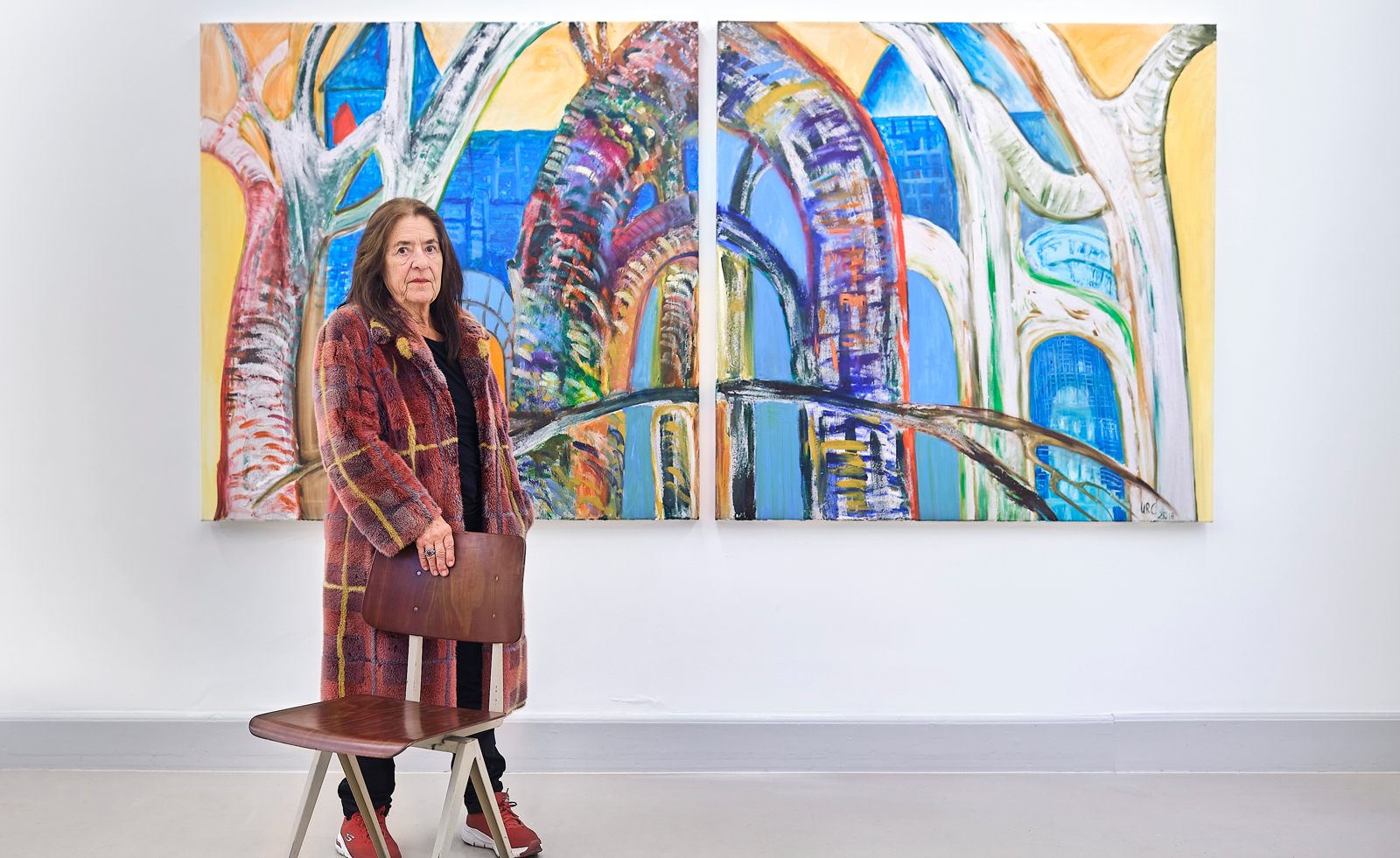
Receive our daily digest of inspiration, escapism and design stories from around the world direct to your inbox.
You are now subscribed
Your newsletter sign-up was successful
Want to add more newsletters?

Daily (Mon-Sun)
Daily Digest
Sign up for global news and reviews, a Wallpaper* take on architecture, design, art & culture, fashion & beauty, travel, tech, watches & jewellery and more.

Monthly, coming soon
The Rundown
A design-minded take on the world of style from Wallpaper* fashion features editor Jack Moss, from global runway shows to insider news and emerging trends.

Monthly, coming soon
The Design File
A closer look at the people and places shaping design, from inspiring interiors to exceptional products, in an expert edit by Wallpaper* global design director Hugo Macdonald.
Last night, Ursula Reuter Christiansen had a dream. An enormous eagle swooped down and grabbed the German-Danish artist, before dropping her in a strange land which she calls, ‘the country of the old people’. Now in her eighties, Reuter Christiansen is something of a matriarchal figure in Denmark, where she has lived since the end of the 1960s.
Through the 1970s, she was at the forefront of the women’s movement and the first female professor of painting at the Royal Danish Academy of Fine Arts in Copenhagen (1997–2006). Her artistic world is deeply personal, filled with allusion to mythology and fairy-tale, the natural world, and the role of women. ‘I have always said that I am my pictures, my pictures are me,’ she explains. At times, Reuter Christiansen was criticised by other feminists for being too melancholic or even too feminine in her art; worse still when she took her husband’s name.
Reuter Christiansen was studying at the Kunstakademie Düsseldorf under Joseph Beuys when she fell in love with Danish composer Henning Christiansen. The pair settled in a farmhouse on the island of Møn, known for being an artist enclave, with green fields, chalk cliffs, and prehistoric remains, and where she still lives today.
Ahead of an exhibition at the Copenhagen outpost of von Bartha – ‘Ursula Reuter Christiansen, Rose Thorn’ (until 22 December 2023) – we are speaking over coffee as Reuter Christiansen’s grandchildren spill in and out of the kitchen. Her mind is filled with thoughts of the eagle and becoming a resident of the land of the old people, whom she refers to as ‘comrades’.
Ursula Reuter Christiansen on ‘Rose Thorn’ and pushing forward
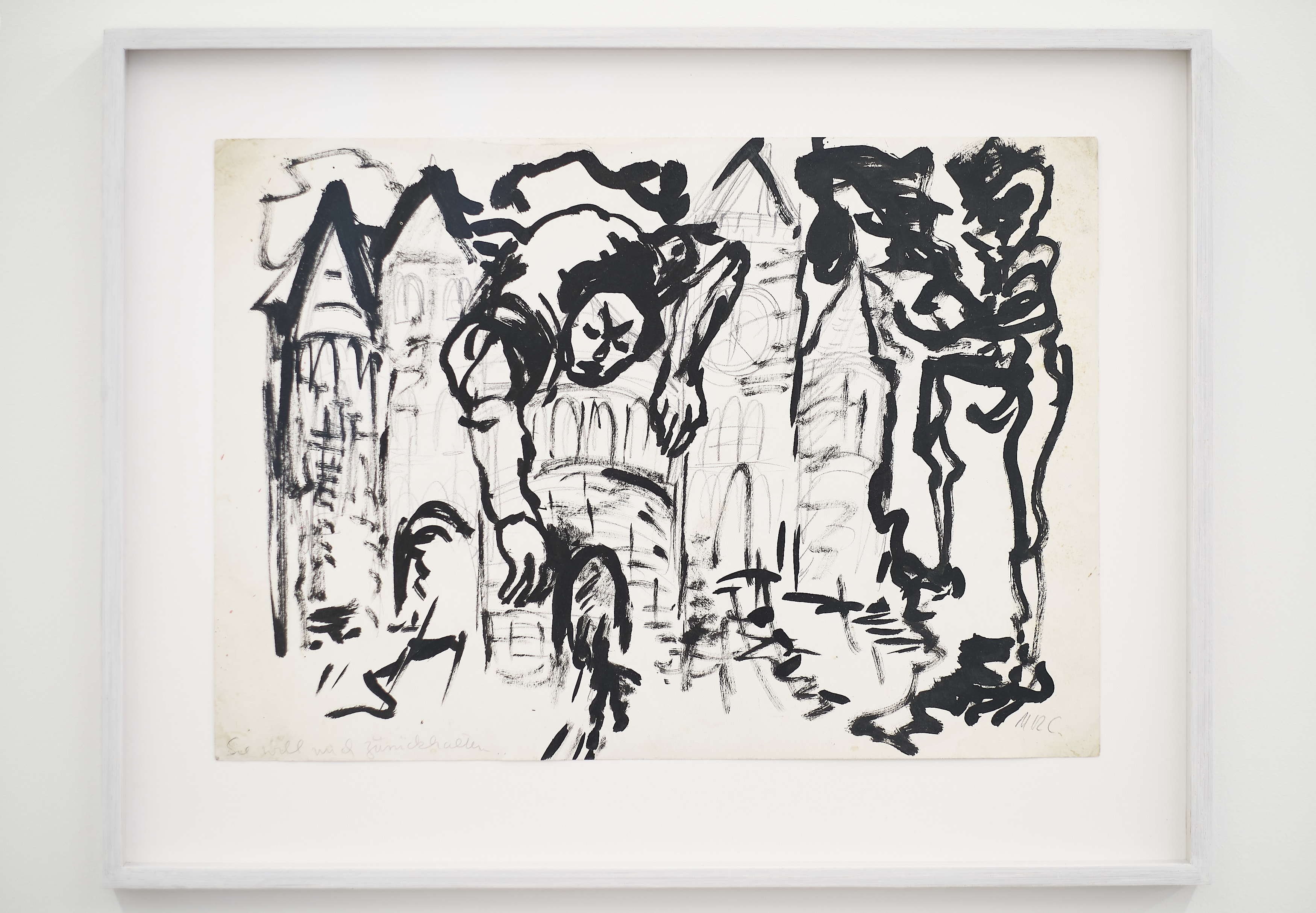
Ursula Reuter Christiansen, Sie will mich zurückhalten, not dated
For Reuter Christiansen, the here and now is far more interesting than retracing the activism of her youth: ‘It was a long time ago you understand – it was 50 years ago!’ Naturally, her perspective has changed with a family that includes sons and grandsons. The slogan, ‘The next great moment in history is ours’, by Dorothy Iannone, which appears on the final frame of Reuter Christiansen’s film The Executioner (1971), has taken on fresh meaning. ‘No, it is all of ours the next great movement,‘ she says. ‘We have to decide.’
Reuter Christiansen is focused upon her new reality and the task of pushing forward. ‘I know it’s very difficult,’ she says, ‘but I have to go through, and through, and through.’ The question of what lies beyond is the main thrust of her show at Von Bartha. The gallery occupies a 19th-century lighthouse in the Carlsberg area of Copenhagen, which once illuminated the way to the brewery. Reuter Christiansen was mesmerised by the building, as if a fairy-tale castle had come to life. ‘The first thing I said was, we have to establish light again.’ In the gloom of the Danish winter, the lighthouse will shine once more, like a beacon amidst a forest of skyscrapers.
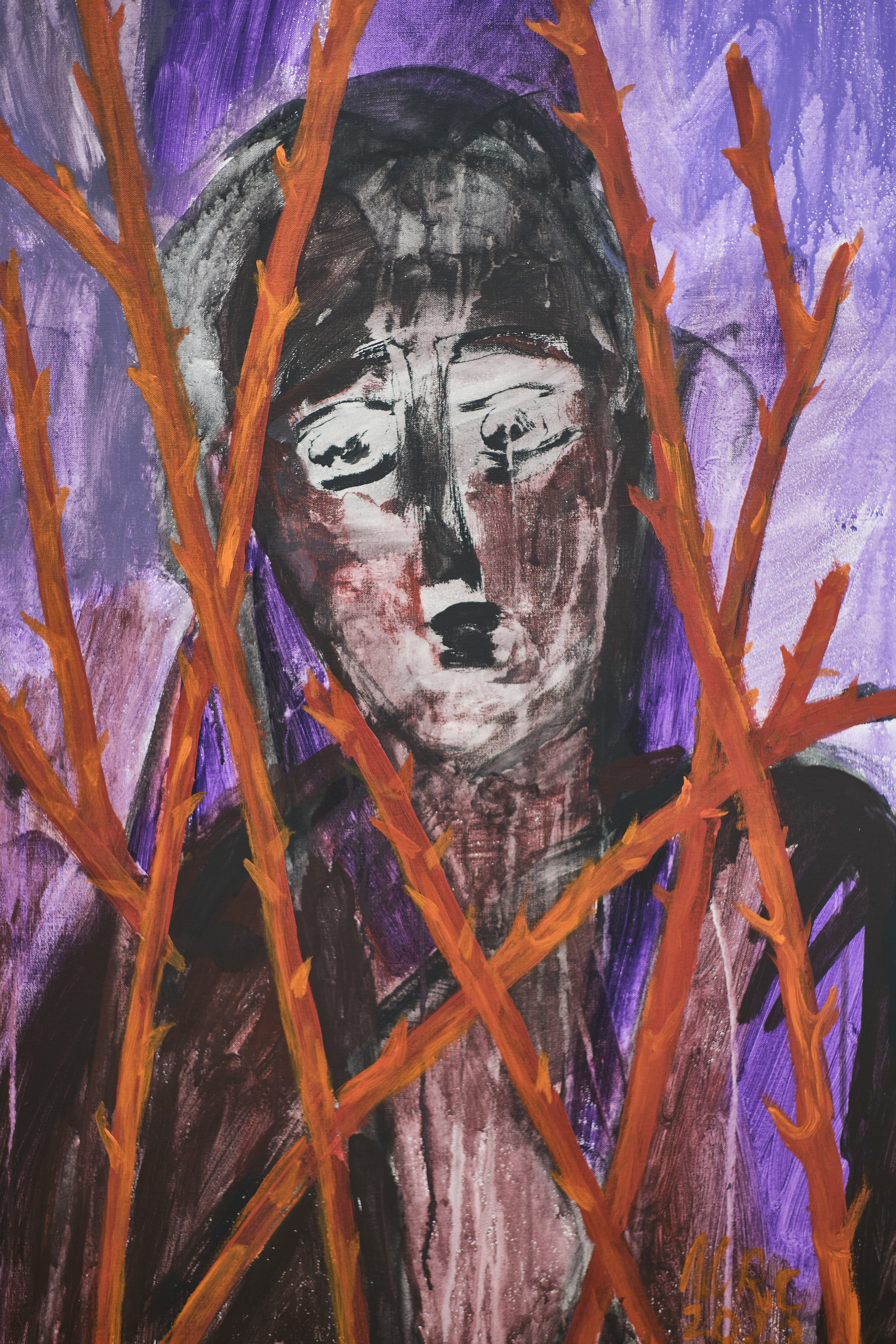
Ursula Reuter Christiansen, Rose Thorn - Die Träne, 2023
Reuter Christiansen is drawn to the ‘barrier of thorns’ that surrounds the enchanted castle in fairy-tales, through which every hero must battle – emerging scratched, wounded, and changed. Von Bartha is filled with rose thorns from Reuter Christiansen’s garden that conjure this magical realm of transformation. The Møn farmhouse itself is like a lighthouse, surrounded by fruit trees and rose bushes. One might imagine Reuter Christiansen in her youth looking out to the rolling fields and wondering how to forge a creative life, needing to push through the rose thorns to what lies ahead.
Receive our daily digest of inspiration, escapism and design stories from around the world direct to your inbox.
Nature has always played a profound role in Reuter Christiansen’s art, as a child of the forest and German Romanticism. When it comes to beautiful pictures of nature though: ‘I have no time for it – it’s no longer important.’ For Reuter Christiansen, ‘the only thing is to make those rose thorns. You have to come through, you have to fight.’
‘Ursula Reuter Christiansen, Rose Thorn’ is at Von Bartha, Copenhagen, 4 November – 22 December 2023, vonbartha.com
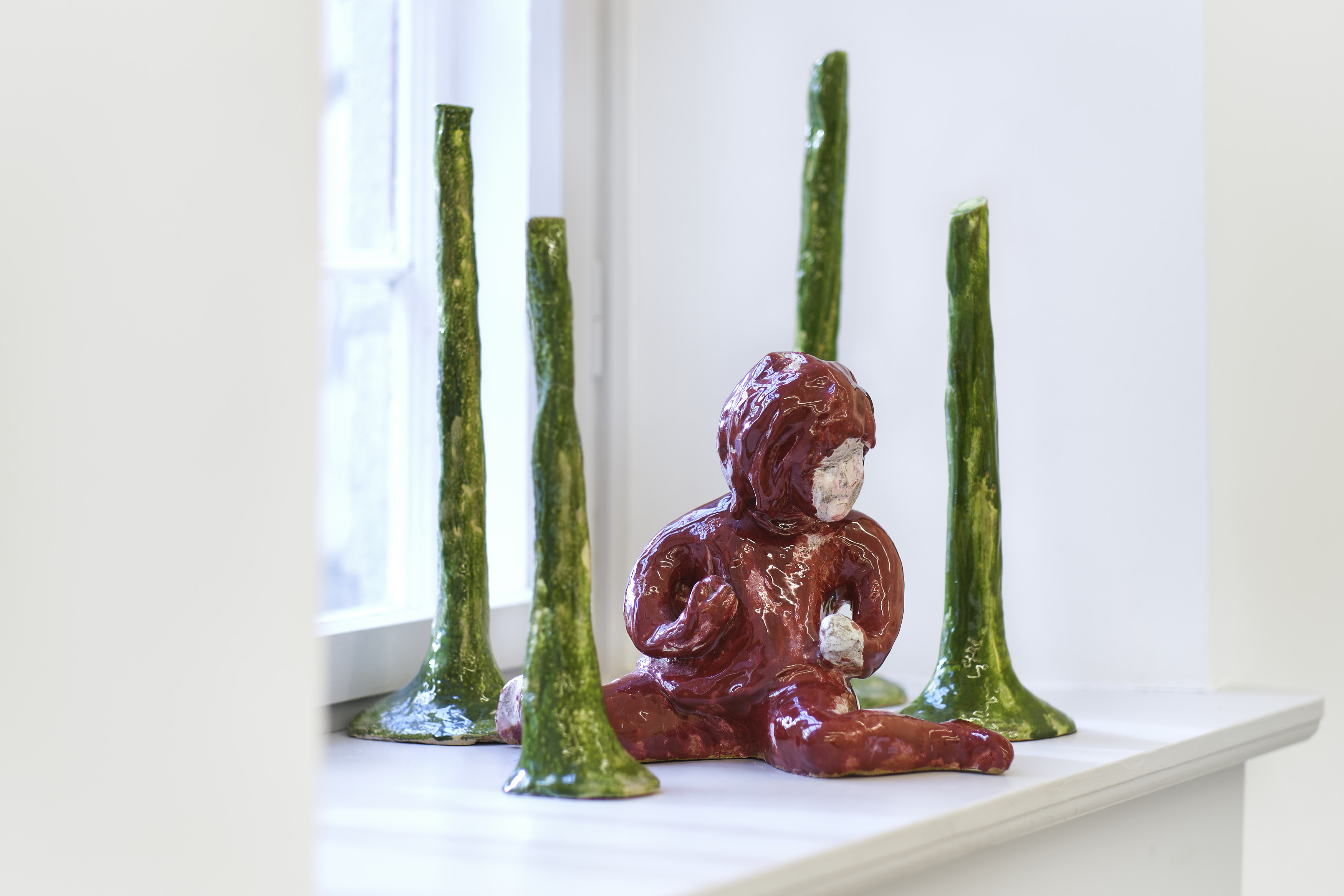
Exhibition view, Ursula Reuter Christiansen, ‘Rose Thorn’, 2023, at von Bartha, Copenhagen, 2023, featuring Red Riding Hood, not dated
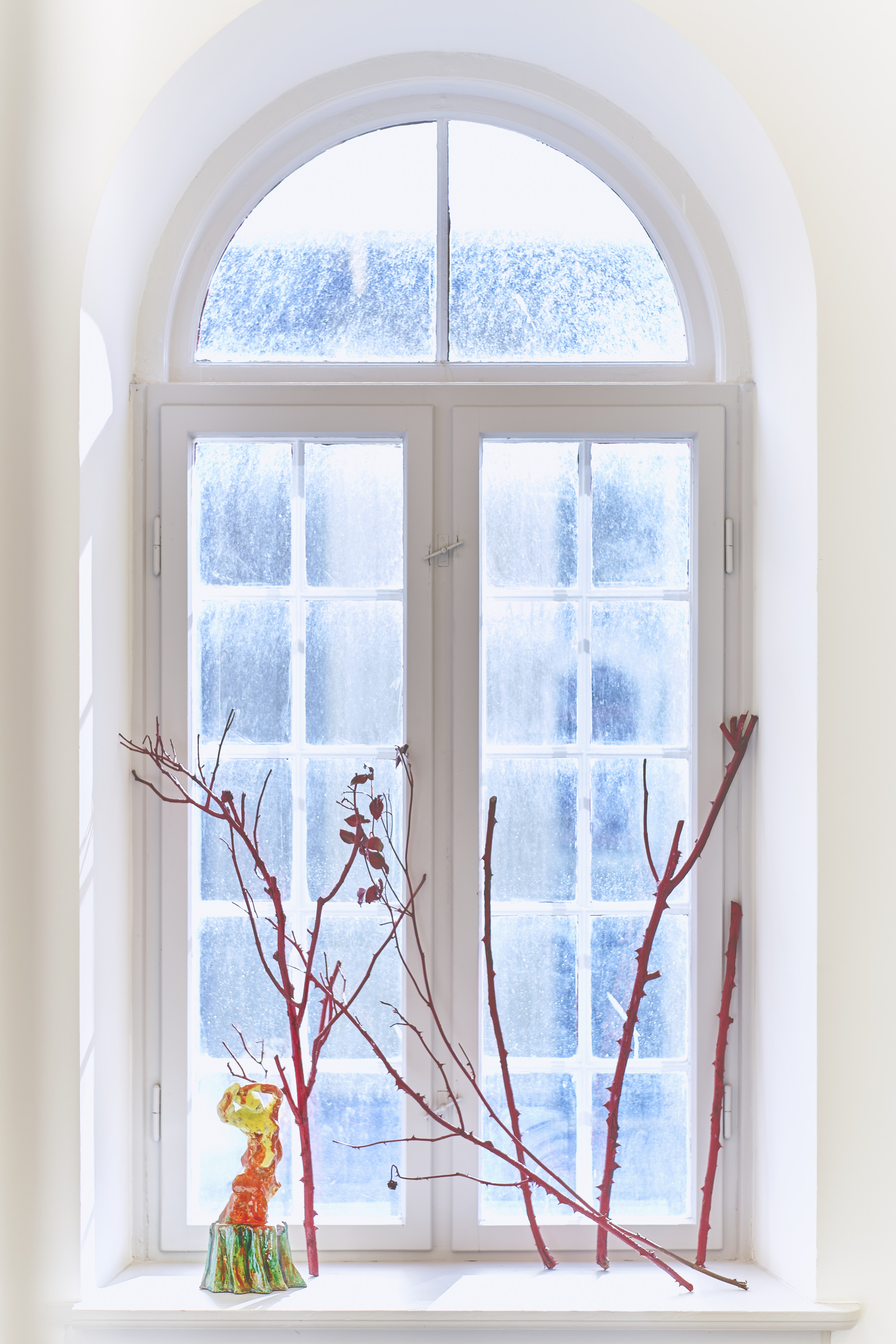
Exhibition view, Ursula Reuter Christiansen, ‘Rose Thorn’, 2023, at von Bartha, Copenhagen, 2023, featuring Die kleine Tänzerin, not dated